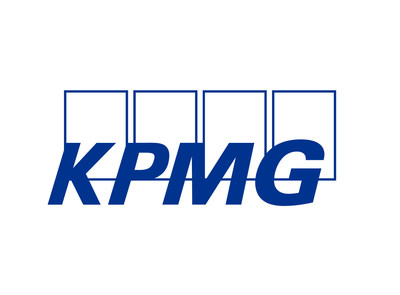
Rolling out AI, upskilling employees, mitigating trade risks all emerge as themes
TORONTO, Oct. 15, 2025 /CNW/ – Amid economic uncertainty, the CEOs of Canada’s largest and most-influential companies are focused on driving productivity and building resilience, primarily by putting artificial intelligence (AI) into practical, active use, finds KPMG in Canada’s 2025 CEO Outlook.
AI emerged as the top investment priority for 78 per cent of Canadian CEOs, in line with their global counterparts at 71 per cent, and 83 per cent of Canadian business leaders in a separate KPMG survey of predominantly medium-sized companies.
“Canadian CEOs are turning to new tools to redefine success and transform their business at a time when stickhandling through heightened uncertainty becomes increasingly more difficult,” says Benjie Thomas, Chief Executive Officer and Senior Partner, KPMG in Canada. “The challenge is, being disciplined in their capital deployment to ensure AI aligns with their business strategy, implemented appropriately and integrated into their operations to ensure material productivity gains. This can’t be done without employee buy-in, training, and literacy.”
A longstanding issue in Canada, labour productivity and overall business investment, already anemic, both declined in the second quarter, Statistics Canada recently reported.
“It’s impossible to move the dial on productivity without addressing business investment, which is why it’s encouraging to see CEOs invest in AI tools that can reverse productivity declines,” says Mr. Thomas.
Indeed, ‘understanding and implementing AI’ was cited by Canadian CEOs as their top operational priority for the next three years, with 73 per cent planning to invest between 10 and 20 per cent of their budgets to AI over the next 12 months. By comparison, global CEOs ranked it second behind ‘advancing digitization and connectivity’, with 69 per cent intending to spend between 10 and 20 per cent of their budget on AI over the next year.
Asked to identify the most-essential leadership qualities to steer their organization through geopolitical instability and lackluster economic growth, Canadian CEOs cited the “ability to lead transformation and culture change”, acting with “greater agility and faster decision-making under pressure”, “stronger strategic foresight and scenario planning capabilities”, and ensuring “AI understanding and literacy” among their employees.
“Canada is entering a pivotal time as it rewires its economy and AI transforms business,” says Mr. Thomas. “CEOs recognize that to build a prosperous and vibrant country starts in their own organization at the very top with their ability to lead and inspire their teams to accelerate innovation and growth. The time for complacency is over.”
Rolling out AI with purpose
While nearly eight in 10 (78 per cent vs. 79 per cent globally) are rethinking how employees are trained and developed in the AI era, only 17 per cent (vs. 20 per cent globally) say their organization is equipped to upskill their employees to fully leverage the benefits of AI. The findings are similar at medium-sized Canadian organizations, with 86 per cent agreeing they are rethinking employee training but only 38 per cent believing their company is equipped to upskill employees to fully harness AI’s potential.
As a result, fewer than one in five Canadian CEOs (16 per cent vs. 20 per cent globally) expressed confidence in the ability of their employees to fully leverage the benefits of AI, the KPMG CEO survey finds. This compares with 35 per cent of C-suite leaders at primarily medium-sized Canadian companies.
“The most-successful integrations of AI start with your employees,” says Timothy Prince, the Canadian Managing Partner for Clients and Markets, KPMG in Canada. “By embracing the possibilities rather than fearing the unknown, business leaders can position AI as more than just a productivity tool – it can help transform the organization by enhancing and expanding the abilities, creativity and impact of employees and driving innovation.
“Those who approach uncertainty with imagination and curiosity will unlock AI’s full potential; not only streamlining operations, but also sparking bold solutions to complex business and societal challenges.”
When rolled out properly, AI is already making a difference from transforming supply chain resilience, mitigating cybersecurity risks and detecting fraudulent activity, and personalizing customer experiences at scale to driving breakthroughs in diagnosing and treating diseases, optimizing urban planning for disaster-prone areas, tracking carbon emissions and optimizing energy consumption in data centres, says Mr. Prince.
Mitigating risks to growth
Supply chain resilience emerged as the top pressure or challenge driving the short-term decisions for both Canadian and global CEOs. For Canadian CEOs, regulatory pressures, cybersecurity, AI ethics and governance, and AI integration into organization processes and systems are the other pressures or challenges driving their short-term decisions. By comparison, global CEOs said integration of AI into their organizational processes and systems, cybersecurity, global economic uncertainty, and regulatory pressures are driving their short-term decisions.
“It’s a tough environment, with a lot of uncertainty for businesses whether it’s from trade relations to the next cyberattack to emerging technologies like AI and quantum computing to new regulations,” says Mr. Prince. “The natural reaction to uncertainty is to pause investments but what we’re hearing from our clients and what the surveys bear out is that they are continuing to invest in areas that will make them stronger, more agile and ultimately more resilient.”
To mitigate “pressing business risks”, the survey finds that Canadian CEOs are increasing their investments over the next three years in the following areas: cybersecurity and digital resilience; regulatory compliance and reporting; solution and technology innovation to open new markets or scale operations; AI integration, governance and ethics; and supply chain resilience and operational continuity.
Read here for more CEO insights.
About the KPMG CEO Outlook and Generative AI Business Adoption surveys
The 11th edition of the KPMG CEO Outlook, conducted with 1,350 CEOs between August 5 and Sept. 10, 2025, provides unique insights into the mindset, strategies and planning tactics of CEOs. All respondents oversee companies with annual revenues over US$500 million and a third of the companies surveyed have more than US$10 billion in annual revenue. The survey included CEOs from 11 key markets (Australia, Canada, China, France, Germany, India, Italy, Japan, Spain, UK and US) and 12 key industry sectors (asset management, automotive, banking, consumer and retail, energy, healthcare, infrastructure, insurance, life sciences, manufacturing, technology, and telecommunications).
KPMG in Canada surveyed 753 business leaders between August 15 and Sept. 3, 2025, for their insights into AI adoption, integration, ROI, and employee training and literacy. The online survey was conducted over Sago’s Methodify research platform. Sixty-four per cent of respondents are from privately held organizations and 36 per cent are from publicly traded organizations. Thirty per cent reported annual revenue over $1 billion; 35 per cent, between $500 million to $1 billion; 30 per cent between $100 million and $500 million; and 5 per cent, between $50 million and $100 million.
About KPMG in Canada
KPMG LLP, a limited liability partnership, is a full-service Audit, Tax and Advisory firm owned and operated by Canadians. For over 150 years, our professionals have provided consulting, accounting, auditing, and tax services to Canadians, inspiring confidence, empowering change, and driving innovation. Guided by our core values of Integrity, Excellence, Courage, Together, For Better, KPMG employs more than 10,000 people in over 40 locations across Canada, serving private- and public-sector clients. KPMG is consistently ranked one of Canada’s top employers and one of the best places to work in the country.
The firm is established under the laws of Ontario and is a member of KPMG’s global organization of independent member firms affiliated with KPMG International, a private English company limited by guarantee. Each KPMG firm is a legally distinct and separate entity and describes itself as such. For more information, see kpmg.com/ca.
For media inquiries:
Caroline Van Hasselt
National Communications and Media Relations
KPMG in Canada
(416) 777-3288
[email protected]
SOURCE KPMG LLP




